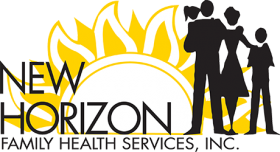What is HCH Day?
HCH Day falls in the middle of Health Center Week, seven days of celebrating the Health Center program and its critical role in the health care safety net. Health Center Week occurs August 13 – 19 and is primarily organized by the National Association of Community Health Centers (NACHC).
HCH Day (August 16) specifically celebrates Health Care for the Homeless (HCH) Projects, which are considered special population Health Centers. Each year consumers and staff at HCH projects organize events to highlight the important services provided to individuals experiencing homelessness. These events allow HCH projects to build relationships with community partners, engage elected officials, and show appreciation for the consumers, staff, and communities that support the vital work of HCH.
What makes HCH unique?
Homelessness is a significant barrier to good health. Poor nutrition, inadequate hygiene, exposure to violence and weather-related illness and injury, increased risk of contracting communicable diseases, and the constant stress of housing instability all contribute to the health issues faced by individuals experiencing homelessness. Without housing, what many see as a simple scrape endured from falling down can become infected, routine colds can develop into pneumonia, and manageable chronic diseases such as asthma, hypertension, diabetes, and HIV can become disabling, life-threatening, and costly conditions. Rates of all illnesses for people experiencing homelessness are three to six times higher than those of other populations, and life expectancy is 30 years shorter.
HCH projects work to provide critical health care services in a comprehensive, team-based model that seeks to address the interconnected health and social problems faced by most individuals experiencing homelessness. The work of HCH projects is vital to ensuring the basic health care needs of the vulnerable population experiencing homelessness, eliminating health disparities, and ending homelessness in our country.
HCH projects work to provide accessible, quality, and comprehensive care.
- Accessibility for people without homes requires some extra effort for health centers. Dispossessed people are often reluctant to seek services in a system that has failed on every front to meet their needs, and competition to have those needs met can keep them away from clinic doors. Many HCH projects take care directly to the streets and shelters, actively seeking out the most vulnerable of our neighbors.
- Quality care for people who are unstably housed is attainable. Good clinical practices like patient self-determination goal setting, motivational interviewing, and trauma-informed care are generating outcomes on a par with or better than the outcomes of other populations on measures like hypertension control.
- Comprehensive care is possible in HCH because a multitude of actors collaborate with those inside the medical exam room to address the needs of the whole person, including mental health, substance abuse and social needs. Many HCH projects are also involved in innovative treatment models, such as patient centered medical homes, permanent supportive housing, and medical respite care programs; which have the potential to lower system wide costs and improve the health and stability of homeless persons.

